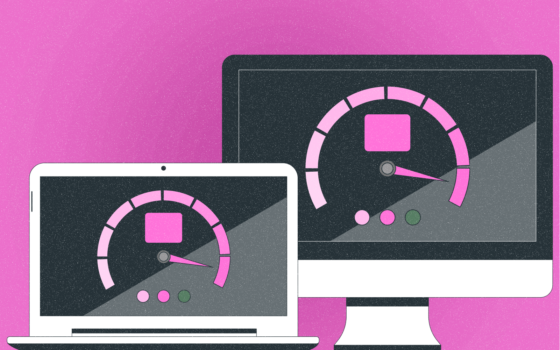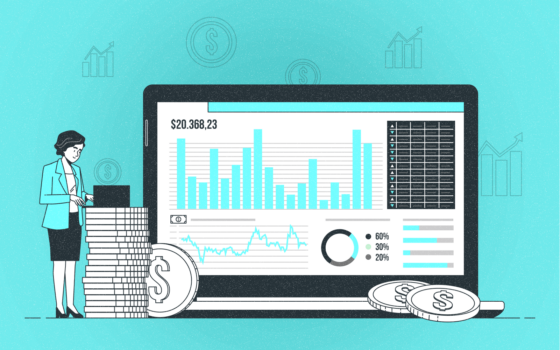10 Best Time Management Tips for Work
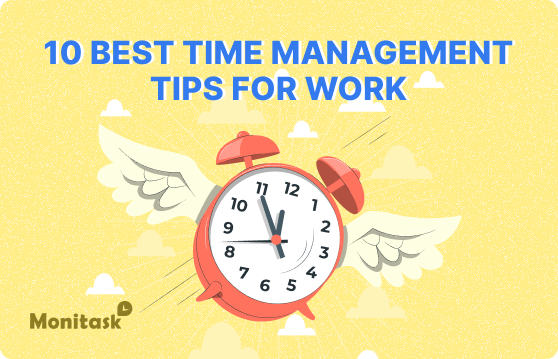
Effective time management is the key to productivity, reduced stress, and achieving work-life balance.
Whether you’re managing multiple projects or handling daily tasks, adopting the right strategies can help you make the most of your workday.
Here are 10 proven strategies for better time management to boost your efficiency.
10 Proven Strategies for Better Time Management
Mastering time management requires a structured approach. Below are 10 practical strategies to help you optimize your time and maximize efficiency.
1. Keep Your Work and Schedule Organized
A cluttered workspace and a disorganized schedule can lead to wasted time and decreased productivity. Keeping both your tasks and physical workspace organized will help you stay on track.
Tips for Staying Organized:
- Use digital planners or project management tools like Trello, Asana, or Notion.
- Maintain a to-do list to track daily, weekly, and monthly tasks.
- Keep your desk clean and free of unnecessary items to improve focus.
2. Identify and Focus on Key Priorities
Not all tasks hold the same level of importance. Use the Eisenhower Matrix to categorize tasks based on urgency and importance. Focus on high-impact activities that align with your goals rather than getting caught up in trivial tasks.
3. Develop a Structured Daily Plan
Start each day with a clear plan. Allocate time for each task, schedule breaks, and ensure you set realistic deadlines. Having a structured plan prevents last-minute stress and keeps you on track.
4. Set Specific and Achievable Goals
Establish clear objectives using the SMART goal-setting method—Specific, Measurable, Achievable, Relevant, and Time-bound. When you have well-defined goals, you can prioritize your work effectively.

5. Assign Tasks Efficiently to Others
Delegation is essential for time management. Identify tasks that can be handled by colleagues or team members, allowing you to focus on high-priority work. Effective delegation boosts team efficiency and prevents burnout.
6. Minimize Distractions for Maximum Focus
Distractions like social media, phone notifications, and workplace interruptions can waste valuable time. Creating a distraction-free environment is essential for maintaining focus.
How to Reduce Distractions:
- Silence unnecessary notifications or use “Do Not Disturb” mode.
- Set specific “focus hours” where you work without interruptions.
- Use noise-canceling headphones or background music to improve concentration.
7. Leverage Technology for Smarter Productivity
Use time management software like Monitask to track work hours, monitor progress, and manage remote teams efficiently. Other tools like Trello, Asana, and Google Calendar can help streamline workflow and automate repetitive tasks.
8. Manage Procrastination with Time Limits
Procrastination can be tackled by setting time limits for each task. Break larger tasks into smaller steps and assign deadlines for each. This prevents work from feeling overwhelming and keeps momentum going.
9. Take Regular Breaks to Maintain Efficiency
Overworking leads to burnout and decreased productivity. Use techniques like the Pomodoro Technique, which involves 25 minutes of focused work followed by a 5-minute break to maintain high energy levels throughout the day.

10. Reflect and Adjust Your Time Management Approach
Consistently assess how you’re managing your time. Identify areas for improvement, adjust strategies, and experiment with new methods to optimize productivity. Self-evaluation ensures continuous progress.
Maximize productivity of your business
Track employee productivity and simplify work with them
Ways to Enhance Your Time Management Skills
Once you have implemented the fundamental strategies for managing your time, refining your approach with additional techniques can help you become even more efficient, focused, and productive.
Here are six powerful methods to enhance your time management skills:
1. Implement the Pomodoro Technique for Better Focus
The Pomodoro Technique is a proven method to improve focus and avoid burnout. It involves working for 25-minute intervals (Pomodoros) followed by 5-minute breaks. After four Pomodoros, take a longer break of 15–30 minutes.
How it helps:
✅ Keeps you motivated and prevents procrastination.
✅ Encourages deep focus during short bursts of work.
✅ Helps reduce mental fatigue and maintain high energy levels throughout the day.
Try using Pomodoro apps like Focus Booster, Be Focused, or Tomato Timer to help implement this technique effortlessly.
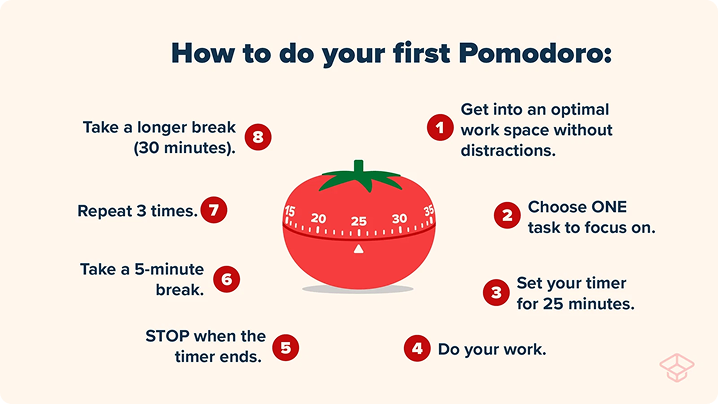
2. Optimize Scheduling with a Calendar System
Using a digital or physical calendar can help you plan ahead, keep track of deadlines, and avoid last-minute stress. Scheduling your work ensures that important tasks don’t slip through the cracks.
How to optimize your calendar:
✅ Set up reminders for important meetings, deadlines, and events.
✅ Use color-coding for different types of tasks (e.g., work, meetings, personal).
✅ Sync your calendar across devices to stay updated wherever you go.
Google Calendar, Outlook Calendar, and Apple Calendar are excellent tools to help manage your schedule seamlessly.
3. Use Time Blocking to Structure Your Day
Time blocking is a powerful scheduling method where you allocate specific time slots to different tasks or activities. Instead of multitasking, you focus on one task at a time within a set period.
How to use time blocking effectively:
✅ Assign specific blocks of time for deep work, emails, meetings, and breaks.
✅ Stick to your schedule and avoid distractions during blocked periods.
✅ Leave buffer time between tasks to handle unexpected interruptions.
Apps like Clockify, Toggl, and Sunsama can help you track and manage your time-blocked schedule more efficiently.
4. Apply the 80/20 Rule (Pareto Principle) for Efficiency
The Pareto Principle, also known as the 80/20 rule, states that 80% of results come from 20% of efforts. Identifying the tasks that contribute most to your success helps you work smarter, not harder.
How to apply the 80/20 rule:
✅ Identify high-impact tasks that drive the most results.
✅ Eliminate or delegate low-value activities that consume too much time.
✅ Focus on efficiency rather than just getting more things done.
By prioritizing the most valuable tasks, you can achieve better results with less effort.
5. Continuously Assess and Improve Your Approach
Time management is not a set-it-and-forget-it skill—it requires ongoing evaluation and adjustments. Reviewing your habits regularly helps you identify what’s working and what needs improvement.
Ways to assess your time management:
✅ Track your time using tools like Monitask, RescueTime, or TimeCamp.
✅ Reflect on which tasks take longer than expected and find ways to streamline them.
✅ Adjust your approach if certain techniques are not delivering results.
The key to successful time management is adapting to changes and constantly refining your workflow.
6. Implement Time Blocking for Structured Work Sessions
Time blocking is an advanced productivity strategy where you divide your day into chunks dedicated to specific types of work. Unlike to-do lists, time blocking ensures that each task has a designated time slot, reducing decision fatigue and improving efficiency.
How to maximize time blocking:
✅ Batch similar tasks together (e.g., responding to emails, deep work sessions).
✅ Avoid over-scheduling—leave room for flexibility in case of emergencies.
✅ Use automation tools to streamline recurring tasks within your time blocks.
By following a structured time-blocking approach, you’ll find it easier to stay on track, minimize distractions, and increase productivity.
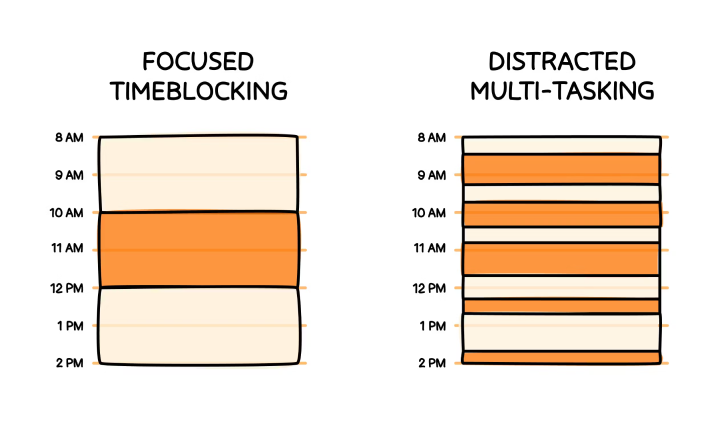
Mastering Time Management is a Continuous Journey
Time management isn’t something you perfect overnight—it’s a gradual process of trial, improvement, and adaptation. The key is to be consistent and open to adjusting strategies based on workload and priorities.
Let’s Collaborate for Better Productivity
If you’re looking for a reliable way to track and optimize your work hours, consider using Monitask. Monitask is an advanced time tracking and productivity management tool designed for professionals and teams. It helps:
- Track time spent on tasks and projects
- Improve workflow efficiency with detailed analytics
- Manage remote teams and ensure accountability
- Eliminate distractions and optimize work performance
By incorporating Monitask into your routine, you can take control of your work hours and enhance your time management efforts effortlessly.
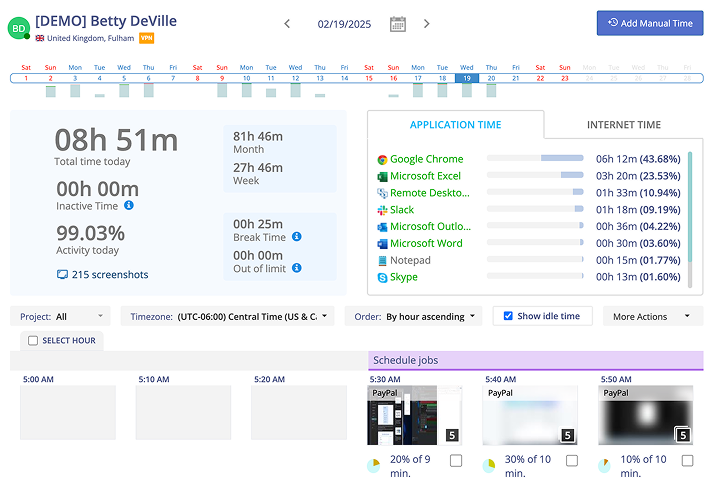
Conclusion
Mastering time management at work requires discipline, planning, and the right tools.
By implementing these strategies, you can increase productivity, reduce stress, and achieve your career goals more efficiently.
Experiment with different techniques, track your progress, and continuously refine your approach to make the most of your time.
– The Monitask Team
Frequently Asked Questions
Why is time management important at work?
Good time management improves productivity, reduces stress, prevents burnout, and enhances work-life balance. It ensures that deadlines are met efficiently and allows for better task organization and prioritization.
What is the 7-8-9 rule for time management?
The 7-8-9 rule suggests structuring your work hours into 7 hours of focused work, 8 hours of rest (including sleep), and 9 hours of other activities (exercise, socializing, and personal time). This balance ensures productivity while maintaining well-being.
